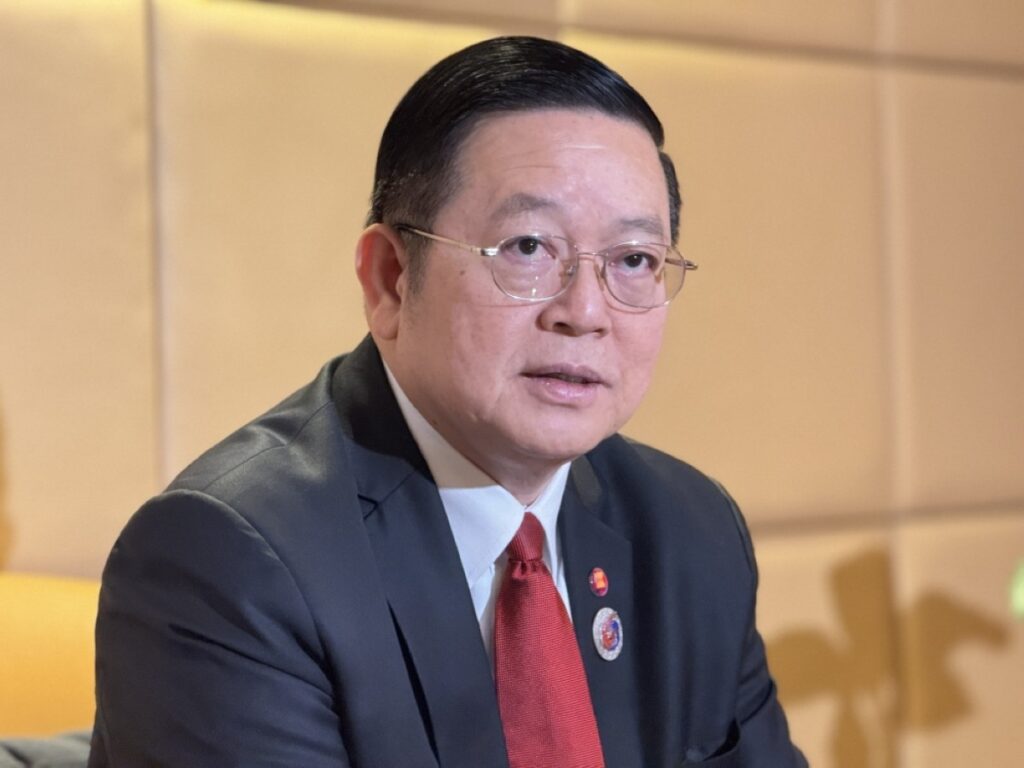KUALA LUMPUR: Secretary-General of the Association of Southeast Asian Nations (ASEAN), Dr Kao Kim Hourn, on Sunday underscored the growing importance of bilateral relations between ASEAN member states and Kuwait, commending the Gulf country’s development blueprint, Kuwait Vision 2035. In remarks to KUNA on the sidelines of preparations for the upcoming ASEAN-Gulf Cooperation Council (GCC) and ASEAN-GCC-China Trilateral Summits, Dr Hourn described Kuwait’s engagement with ASEAN as a vital pillar in the evolving partnership between the two regional blocs.
He particularly lauded Kuwait’s active role in high-level regional dialogues and its forward-looking vision for sustainable development. Dr Hourn welcomed the anticipated participation of His Highness the Crown Prince of Kuwait Sheikh Sabah Al-Khaled Al-Hamad Al-Sabah, who will represent His Highness the Amir of Kuwait, Sheikh Meshal Al-Ahmad Al-Jaber Al-Sabah, at the summits scheduled to take place in Kuala Lumpur on May 26–27. The Crown Prince is expected to lead the Kuwaiti delegation as part of the country’s current chairmanship of the 45th session of the GCC Supreme Council.
He noted the timing of Kuwait’s attendance as highly significant, citing it as a testament to the Gulf leadership’s commitment to sustaining the momentum initiated at the inaugural ASEAN-GCC Summit held in Riyadh in 2023. That landmark event, which gathered leaders from all ASEAN and GCC member states, was widely regarded as a breakthrough in interregional cooperation. Highlighting Kuwait’s distinguished role in humanitarian affairs, Dr Hourn pointed to the country’s potential contributions to ASEAN’s ongoing efforts in addressing the crisis in Myanmar. Given Kuwait’s global standing as a humanitarian leader, he expressed confidence in its capacity to assist in non-political dimensions of the issue.

KUALA LUMPUR: People take photos in front of the logo of the Association of Southeast Asian Nations (ASEAN) ahead of the 46th ASEAN Summit in Kuala Lumpur on May 25, 2025. – AFP
On the economic front, Dr Hourn reported steady progress in the ASEAN-GCC Economic Cooperation Agreement. He revealed that a cooperation framework, adopted by both sides’ leaders two years ago, has culminated in the recent completion of a preliminary feasibility study. This study will soon be shared with member states for review, paving the way for the identification of joint initiatives. While noting that it remains premature to finalize a free trade agreement, Dr Hourn described current developments as promising. He explained that ASEAN is presently focused on deepening economic integration among its own members while also nurturing bilateral partnerships with key external stakeholders, including the GCC.
Turning to ASEAN’s long-term strategic outlook, Dr Hourn elaborated on the association’s Vision 2045, which is structured around four core pillars: political-security cooperation, economic integration, socio-cultural community development and enhanced regional connectivity under the Master Plan on ASEAN Connectivity 2025 (MPAC 2025). He described the vision as a comprehensive roadmap designed to navigate future regional challenges and transformations.
Dr Hourn further emphasized ASEAN’s commitment to its founding principles and values, affirming that the upcoming summits would serve to reinforce these tenets. ASEAN continues to engage with major global partners — among them China, Japan, South Korea, and Australia — while maintaining an active role in the Regional Comprehensive Economic Partnership (RCEP), a multilateral trade agreement encompassing 15 countries. He concluded by expressing optimism that the upcoming engagements in Kuala Lumpur will deepen mutual understanding and chart new avenues for ASEAN-GCC cooperation across strategic, economic, and humanitarian domains. — KUNA

